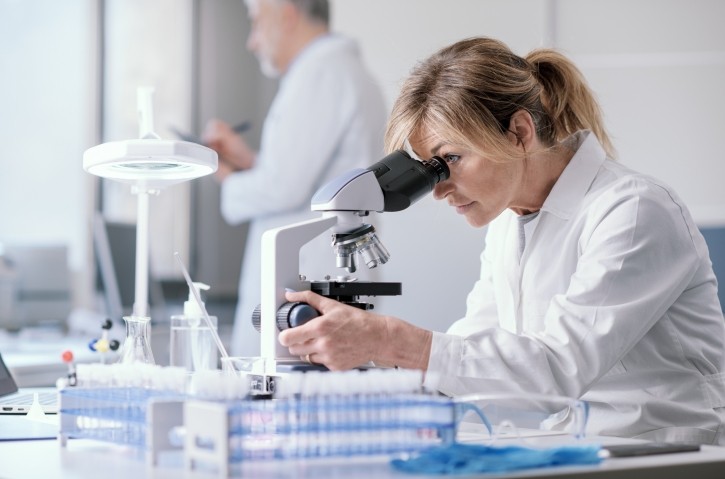“Hormone-led changes cause differences to the vaginal ecology that can have an effect on women’s health later in life.” CEO of Sequential

Microbiome testing company Sequential said it has developed a new approach to testing microbiome. “Although the majority of the key players within the space are relying on 16S sequencing, or occasionally ITS for fungal taxonomy, we have a different approach that allows us to evaluate microbes down to strain level,” shared the company’s CEO and co-founder, Olivier Worsley.
He explained that Sequential uses a method called qPCR in-house to measure the absolute number of copies of a microbial DNA defined by its proprietary Smart Probes™. By using this method, it can quantify the number of bacteria or fungi and report the level of species and strains within a given sample.
For each area that it evaluates – whether that be the microbiome of the skin, scalp, or vagina – the company has selected a list of key microbes that it believes have the most impact on health. It has combined its research working with advisors at the A*STAR institute and publicly available data and has around 18,000 microbiome samples.
“Surge of requests” for studies on women's intimate care products
When it comes to the vaginal microbiome, Worsley said that Sequential’s markers can describe the different vaginal community state types (CSTs) and drill down to the specific species and strain level.
He also said that the company has recently seen a “surge in requests for studies to be carried out on products that have been formulated for intimate care purpose.”
He continued: “As the industry grows, we are seeing more interest in the formulation of intimate care products that aim to target the unique needs of the vaginal region, emphasising the support of a healthy vaginal pH, maintenance of the balance of the vaginal microbiome and helping to prevent infections, irritation and discomfort.”
Worsley noted that Sequential's customers are particularly looking to substantiate their product claims with science-backed evidence when developing products designed to improve intimate health. These product claims are related to ‘maintaining the microbiome’, as well as in vivo and clinical certification for restoring a balance in the microbiome and preventing pathogenic bacteria from growing, and that thanks to its clinical longitudinal studies, Sequential can provide these insights for customers and much more.
Testing the vaginal microbiome can take the form of in vitro and in vivo studies, but Worsley considers the in vitro approach to be “completely isolated from real life context, as the product never truly interacts with the vaginal microbiome.”
He explained that in vivo testing is particularly crucial for intimate care products, as the environment is so intricate and sensitive. The consequences of disruptions caused by poorly tested products can be severe, ranging from irritation and itching to increased vulnerability to infections.
“In vivo testing allows scientists to put a formulation to the test in its true context, with human participants trialling the products over a long period of time,” he said.
“This allows for a comprehensive view of how a product is interacting with the microbiome, and importantly, taking into account the variability that women, in different ethnicities and demographics, have with regard to their vaginal microbiome.”
He said he is also currently seeing a huge uptick in preventative healthcare, especially when it comes to female health, and that consumers are being proactive rather than reactive and ensuring they’re buying into evidence-based intimate products.
“More and more consumers are feeling the stress of fertility, as reproductive rates become later in life, and ensuring that their vaginal health is maintained, to ensure minimal infections and their best chances of conception,” he explained.
A growing focus on menopause health
Worsley also noted that menopausal health is another topic that's receiving more interest and that personal care products and the microbiome are at the forefront of people’s minds.
“When it comes to personal care products, why are we treating all ages the same when we know that the microbiome is significantly different between younger and older women?” he observed.
“This is especially true of the skin and vaginal microbiome where hormone-led changes cause important differences to the skin and vaginal ecology that can have an effect on women’s health later in life.”
Worsley said that Sequential is currently working with three clients specifically on the menopausal microbiome.
And as the topic of women’s health gains more momentum, the business has also recently onboarded two scientific advisors: Kim Capone, who was previously head of microbiome at Johnson & Johnson; and Phillip Bennett, Professor of Obstetrics and Gynaecology and Director of Reproductive and Developmental Biology at Imperial College London.
Worsley also noted that in recent years people have become generally more knowledgeable about their personal health and as a result, brands are being held to higher standards as consumers demand more quantifiable data to support product claims.
“This is a really exciting thing to happen within the microbiome sphere because we need regulations to ensure that no products are making claims about formulations that aren’t truly backed by scientific evidence,” he concluded.
“This will help consumers to identify truly serious science-backed brands from the ones hoping to share in on the trend.”






















